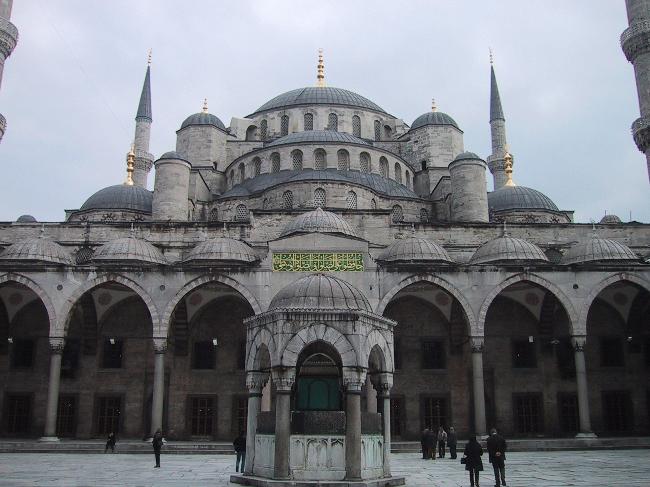Banking, finance, and taxes
Social Unrest, Protests, and Violence Crushing Value in Turkey
Published:
Social unrest has been growing in Turkey, and with it about 10% of the value of the local markets has disappeared. News feeds from Turkey’s Hurriyet Daily News have much coverage of the unrest and protests. We now have reports of at least one death, although this was apparently the death of someone hit by a taxi as they were trying to block traffic with marches. Protests in Ankara and in Istanbul are against government policies, but reports are now of more than 1,000 wounded.
The national stock exchange in Istanbul was shown to have its National 100 Index down some 6.4% on Monday’s opening to 79,047 but then it closed down over 10.4% to 76,983.66 in the evening. The index appears to have posted its worst drop since March 2003. The Turkish Lira is also up to 1.889 against a dollar, which means that the local valuation is now at the lowest level in sixteen months. Another big change seen was that bond yields have risen back to when Cyprus was in the news.
Prime Minister Erdogan was also quoted calling this market uncertainty just a fluctuation as financial markets can rise or fall sharply and are not always stable. Banking stocks were shown to be down about 9%, but tourism-related shares were hit about 13%. Needless to say, market participants did not take much comfort.
There are only three liquid Turkish investments that trade in New York with liquidity. The first is the old closed-end mutual fund called the Turkish Investment Fund Inc. (NYSE: TKF) and late afternoon trading in New York has its shares down a sharp 9.8% at $16.17 against a 52-week trading range of $12.16 to $19.92. Then there are the ADRs of Turkcell, or Turkcell Iletisim Hizmetleri AS (NYSE: TKC), which are down 5.5% at $14.52 with a 52-week trading range of $10.88 to $17.80. Perhaps the most liquid trading product in New York is the iShares MSCI Turkey Invest Market Index (NYSE: TUR), with its shares down 8,6% at $63.30 against a 52-week trading range of $45.92 to $77.40.
One fund which has some overlap is the Central Europe, Russia and Turkey Fund, Inc. (NYSE: CEE). As this is diversified and only has an overlap, this fund was down 0.5% at $31.16. Its shareholders only approved a change in the investment policy to move to an objective from seeking gains from issuers domiciled in Central Europe and Russia to now include Central Europe, Russia and Turkey.
Even shares of National Bank of Greece SA (NYSE: NBG) were lower by 15% to $6.10 in New York ADR trading and down over 12% in local Athens trading. It has substantial banking operations in Turkey via Finansbank.
Many investors might not think that Turkey matters, but it does. Turkey has been trying on and off to join the Euro for years. Our opinion is that Europe is not going to allow Turkey in based upon issues around the nations of the PIIGS that are now very well known for years. This sort of unrest is also not going to help matters.
Turkey also has three other issues that all overlap as one key issue. Its population is large at close to 80.7 million. This would give Turkey a much larger vote in the European Union if it ever was admitted, and many nations in Europe will push back against a 99.8% Muslim population getting this much influence in Europe.
Turkey’s economy is listed as being the 17th largest in the world according to the CIA World Factbook with its 2012 GDP estimated at $1.125 trillion on a purchasing power parity analysis. Turkey’s GDP per capita was also very low at $15,000 on a purchasing power parity basis, giving it a rank down at 91 on the CIA World Factbook ranking.
This is a call which is likely to go unheard by protesters and those in power alike. Representatives from the European Union and the United States governments have called for restraint on the part of police forces and protesters alike.
Investors will also want to know that Turkey is often considered a ripe opportunity for many of the key emerging markets funds. The nation’s growth, upside from ties to Europe, and its young population have all considered to be attractive upside opportunities for Turkey’s future. Civil unrest, police firing tear gas into crowds, and national union strikes won’t exactly help matters on that front.
The thought of burdening your family with a financial disaster is most Americans’ nightmare. However, recent studies show that over 100 million Americans still don’t have proper life insurance in the event they pass away.
Life insurance can bring peace of mind – ensuring your loved ones are safeguarded against unforeseen expenses and debts. With premiums often lower than expected and a variety of plans tailored to different life stages and health conditions, securing a policy is more accessible than ever.
A quick, no-obligation quote can provide valuable insight into what’s available and what might best suit your family’s needs. Life insurance is a simple step you can take today to help secure peace of mind for your loved ones tomorrow.
Click here to learn how to get a quote in just a few minutes.
Thank you for reading! Have some feedback for us?
Contact the 24/7 Wall St. editorial team.